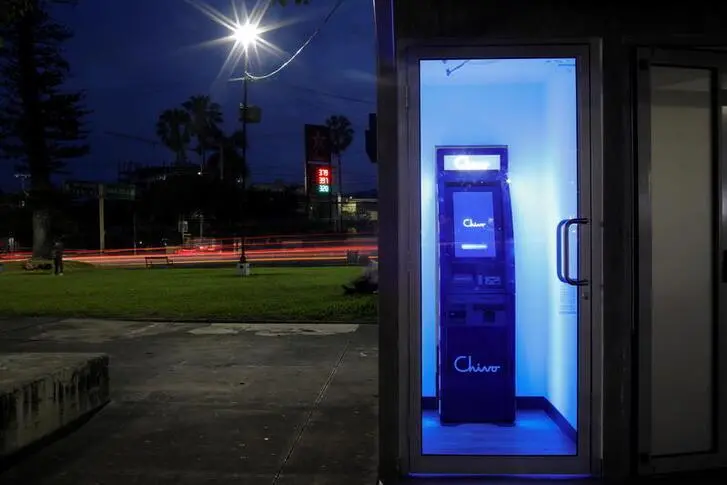PHOTO
SAN SALVADOR: El Salvador's bitcoin-backed bond is facing headwinds as intensifying volatility rocks the cryptocurrency, with Russia's invasion of Ukraine adding more uncertainty over the future of the Central American country's bold experiment.
Despite the doubts, the government insists the bond will launch sometime between March 15 and March 20, after President Nayib Bukele blazed trail last year by making the cryptocurrency the nation's legal tender.
Bitcoin hit a record high above $67,500 in early November, but lost almost half its value by Jan. 22. It traded at $44,200 on Tuesday, according to Refinitiv Eikon data.
Bukele aims to issue his country's first-ever $1 billion bitcoin-backed bond this month and use the proceeds to buy more cryptocurrencies and build "Bitcoin City" - a planned metropolis that would use geothermal energy from a nearby volcano to "mine" the digital coins.
Many analysts question the bond's timing.
"As the international situation becomes more complicated, as markets fall and bitcoin falls, it becomes less attractive," said independent analyst Luis Membreno. A drop below the $40,000 level last week - from which the cryptocurrency has since recovered - undermined the view that bitcoin could offer investors safety, especially as traditional safe haven gold hit multi-month highs, analysts said.
Bitcoin futures are still trading at a premium boosted by what analysts said were investors hedging their long spot positions.
Samson Mow, considered an architect behind the planned Salvadoran issue, said that by mid-February investors had verbally committed $500 million to the bond, but has given no updates since then.
Neither the president's office nor the finance ministry responded to a request for comment.
While Bukele wrote on Twitter on Monday that "the intrinsic value of #Bitcoin" was now on full display, the cryptocurrency's price swings and uncertainty surrounding its regulatory framework raise some economists' concerns.
"It creates an unsuitable context for the government to be able to have a successful placement," said Ricardo Castaneda, economist at the Central American Institute for Fiscal Studies.
TURNING BULLISH?
The popular 40-year-old president, whose labels himself "CEO of El Salvador" on Twitter, last week opened a veterinary hospital he said was built with bitcoin profits.
So far, Bukele has only disclosed the purchase of a total of 1,801 bitcoins without specifying the price. Analysts estimate the government paid around $85.5 million for the stash, which now would be worth 12% less than in September.
But some support El Salvador's foray into bitcoin, arguing the Ukraine crisis could boost its future appeal.
"Bitcoin is turning bullish here as it is showing it can rally even when risk aversion hits Wall Street," Edward Moya, an analyst with foreign exchange firm OANDA, said in a note on Tuesday.
"As the Ukraine crisis deepens, diversification away from the Russian rouble is growing and that has led to flows into cryptos." (Reporting by Nelson Renteria; Translation by Stefanie Eschenbacher; Editing by Diego Ore, David Alire Garcia and Tomasz Janowski)





















